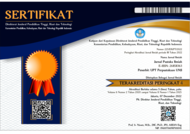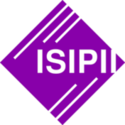The Relationship between Information Literacy and Playing Skills in Bridge Athletes at Padjadjaran University
Abstract
Keywords
Full Text:
PDFReferences
Hasbi, A. Z. El, Damayanti, R., Hermina, D., & Hilmi Mizani. (2023). Penelitian Korelasional (Metodologi Penelitian Pendidikan). Teknik Pengumpulan Data Kuantitatif Dan Kualitatif Pada Metode Penelitian, 2(6), 784–808. https://publisherqu.com/index.php/Al-Furqan/article/view/771
Hen-Herbst, L., Lamash, L., Fogel, Y., & Meyer, S. (2023). Mind Sports: Exploring Motivation and Use of Cognitive Strategies in Bridge. International Journal of Environmental Research and Public Health, 20(6), 1-10. https://doi.org/10.3390/ijerph20064968
Karimudin, A., Misbahul, J., Ummul, A., Suryadin, H., Zahara, F., Taqwin, Masita, Ngurah, A. K., & Eka, S. M. (2022). Metodologi Penelitian Kuantitatif. Yayasan Penerbit Muhammad Zaini.
Kusunarningsih, S. (2018). Hubungan antara Kompetensi Literasi Informasi dengan Kemampuan Menulis dan Prestasi Belajar Mahasiswa Universitas Airlangga. In Repository Universitas Airlangga. https://repository.unair.ac.id/74754/
Lopez, A. L. C., & Tuazon, R. (2020). Towards a Media and Information Literacy Competency Framework. United Nations Educational, Scientific and Cultural Organization (UNESCO). https://unesdoc.unesco.org/ark:/48223/pf0000374230
Mirazita, Y., & Rohmiyati, Y. (2015). Studi Literasi Informasi Mahasiswa Ko-Asisten Fakultas Kedokteran Universitas Diponegoro Menggunakan the Empowering Eight Model. Jurnal Ilmu Perpustakaan, 4(2), 78–85. https://ejournal3.undip.ac.id/index.php/jip/article/view/9509
Muhajang, T., & Pangestika, M. D. (2018). Pengaruh Literasi Informasi Terhadap Efektivitas Belajar Siswa. Pedagonal : Jurnal Ilmiah Pendidikan, 2(2), 15–22. https://doi.org/10.33751/pedagog.v2i2.849
Murti, D. P., & Winoto, Y. (2018). Hubungan antara kemampuan literasi informasi dengan prestasi belajar siswa SMAN 1 Cibinong kabupaten Bogor. BIBLIOTIKA: Jurnal Kajian Perpustakaan dan Informasi, 2(1), 1–5.
Ningtias, L. M., & Kurniawan, A. T. (2016). Analisis Proses Literasi Informasi pada Media Sosial (Stusi Kasus Akun Twitter @SujuFor_ELFindo Komunitas Penggemar Super Junior di Indonesia). Jurnal Ilmu Perpustakaan, UNDIP, 5(3), 1-13.
Punch, S., Russell, Z., & Cairns, B. (2021). (Per)forming identity in the mind-sport bridge: Self, partnership and community. International Review for the Sociology of Sport, 56(6), 804–822. https://doi.org/10.1177/1012690220959648
Punch, S., & Snellgrove, M. (2020). Playing Your Life: Developing Strategies and Managing Impressions in the Game of Bridge. Sociological Research Online, 26(3), 601–619. https://doi.org/10.1177/1360780420973043
Punch, S., & Snellgrove, M. (2023). Bridging time: negotiating serious leisure in intimate couple relationships. Annals of Leisure Research, 624–644. https://doi.org/10.1080/11745398.2023.2197243
Sugiharni, G. A. D., & Setiasih, N. W. (2018). Validitas dan Reliabilitas Instrumen Evaluasi Blended Learning Matakuliah Matematika Diskrit di STIKOM Bali Berbasis Model Alkin. IndoMath: Indonesia Mathematics Education, 1(2), 93-108. https://doi.org/10.30738/indomath.v1i2.2626
Sulasari, R., Dastina, W., & Ramayanti, R. (2020). Kemampuan Literasi Informasi Mahasiswa Universitas Islam Negeri Sulthan Thaha Saifuddin Jambi Berdasarkan “the Seven Pillars of Information Literacy.” Nazharat: Jurnal Kebudayaan, 26(02), 431–456. https://doi.org/10.30631/nazharat.v26i02.37
Yanto, A., & Erwina, W. (2017). Tren Perkembangan Penelitian tentang Literasi InformasTreni pada Penelitian Mahasiswa Ilmu Perpustakaan dan Informasi Universitas Padjadjaran. JIPI (Jurnal Ilmu Perpustakaan Dan Informasi), 2(1), 11–20. www.bibliotech.us/pdfs/InfoLit.pdf
DOI: https://doi.org/10.20961/jpi.v11i1.100397
Refbacks
- There are currently no refbacks.

This work is licensed under a Creative Commons Attribution-NonCommercial-ShareAlike 4.0 International License.




.png)
.png)









1.jpg)
